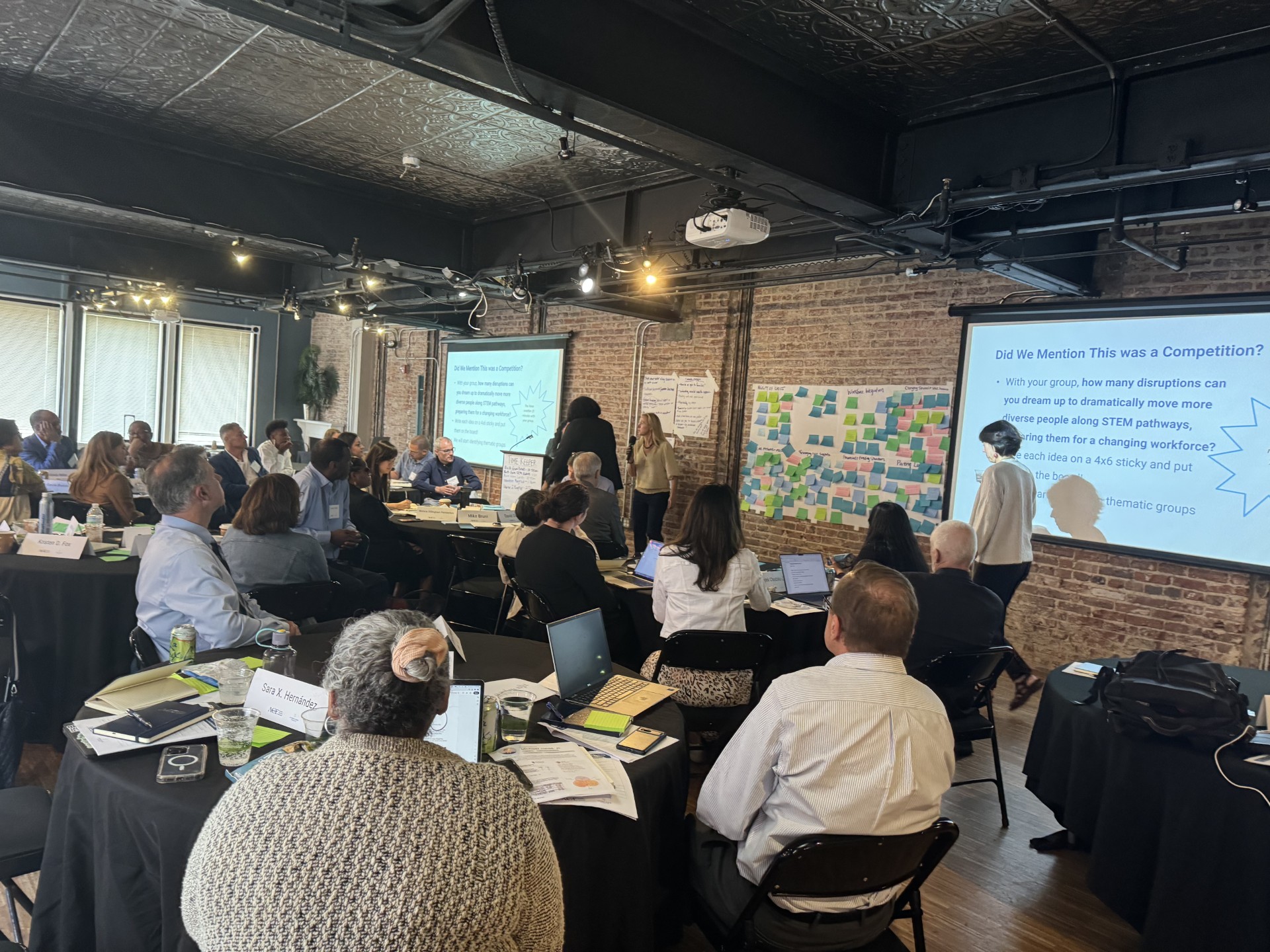In an effort to address the underrepresentation of racially marginalized students in STEM graduate programs, ACE convened a new Innovation Lab on June 27-28, gathering around 35 experts, educators, and industry leaders to reimagine graduate education with an emphasis on equity, innovation, and workforce integration.
The event opened with remarks from Hironao Okahana, ACE’s assistant vice president and executive director, Education Futures Lab.
“Through high-impact, evidence-inspired programs, the Education Futures Lab leads ACE’s efforts to elevate the postsecondary sector’s capacity to realize better futures for learners and drive social impact,” Okahana said. “This convening is a key part of our mission to champion equity, access, completion, and mobility for today’s learners.”
Lorelle Espinosa, program director at the Alfred P. Sloan Foundation, which sponsored the lab, highlighted findings from ACE’s recent
Race and Ethnicity in Higher Education: A Status Report that found 81 percent of Black and Latino PhD recipients graduate with over $40,000 in debt, compared to just 6 percent for White students, which highlighted the need to not only support individual rising scholars but to foster systemic changes within institutions to rethink graduate education holistically.
U.S. Bureau of Labor Statistics data show significant growth in STEM employment over the past 30 years, yet a significant underrepresentation of racially marginalized groups in the STEM workforce. Racially marginalized workers made up about 25 percent of the STEM workforce in 2021.
“Diversifying pathways is not enough to fill gaps,” said Darsella Vigil, senior analyst and program officer for ACE's Education Futures Lab. “Pathways and programs must be restructured to meet the needs of current and potential graduate students who look very different than the former traditional student, especially those from underrepresented backgrounds who face unique barriers. STEM graduate education is failing these students.”

Attendees at ACE's STEM Graduate Education Innovation Lab.
During the convening’s first day, the initial group brainstorming sessions focused on how to address the shortcomings in STEM graduate education. The discussions made it clear that merely diversifying pathways into STEM fields is insufficient. Graduate programs need to meet the needs of current and potential students, especially those from underrepresented backgrounds who face unique barriers.
Participants engaged in a series of discussion groups, where they were encouraged to think about dramatic changes and ideas that could help diverse groups move along STEM pathways. These ideas were refined and narrowed through lively discussions, presentations, and a voting process. Among the standout proposals were:
-
Industry Partnerships and Infrastructure at MSIs: Form an industry consortium to fund graduate education; create apprentice-like learning pathways with applied research; and build strong infrastructure at Minority Serving Institutions (MSIs) through strategic partnerships.
-
Separate Research Funding from Student Supports: Ensure research funding is distinct from student support systems to promote student independence and fair distribution of financial resources.
-
Reward Nontraditional Scholarship: Recognize and reward diverse forms of scholarship; reevaluate dominant knowledge frameworks; and use graduate student success as a measure of faculty and institutional performance.
-
National STEM Talent Program: Launch a national initiative to develop STEM talent, similar to historical moonshot programs, to prioritize and advance STEM graduate education.
-
Stackable Credentials: Create flexible educational pathways allowing students to earn incremental credentials, facilitating career advancement and enhancing the value of their learning experiences.
As the convening ended, participants reflected on the potential impact of their ideas. Some participants expressed concern about the limited immediate impact on systemic racism and the power dynamics and potential resource shifts that could influence the success of these initiatives. Faculty buy-in was another limitation expressed by participants. With these challenges noted, ACE staff concluded the convening, which marked a significant step towards reimagining STEM graduate education. ACE will continue the conversation with participants and other experts as it continues to think collaboratively about how to move these solutions forward.
“The ACE Innovation Lab’s efforts underscore the importance of collaboration between academia, industry, and funding bodies to create a more just and effective educational landscape,” said Okahana. “As the discussions continue, the hope is that these innovative ideas will lead to tangible changes, ensuring that minority students in STEM not only enter but thrive in their chosen fields.”
